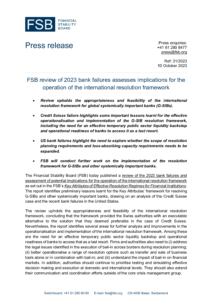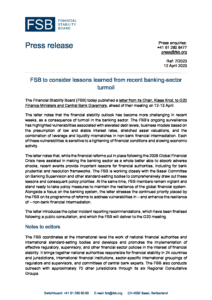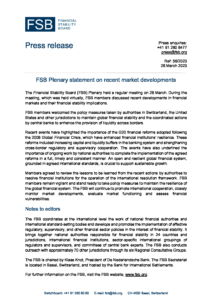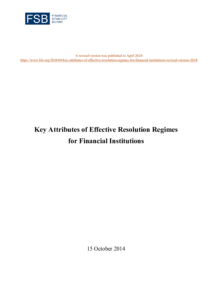There had been several cases since 2008 where the resolution framework proved to be an effective safeguard for both depositors and financial stability. The Credit Suisse case involved the failure of a global systemically important bank (G-SIB), the most significant failure since 2008. In addition, the failures of Silicon Valley Bank, Signature Bank and First Republic Bank showed that banks not identified as G-SIBs can still be systemically significant or critical in failure.
This report describes the bank distress cases that occurred in March 2023 and authorities’ approaches to address that distress. It assesses implications for the FSB Key Attributes’ framework for resolving G-SIBs and other systemically important banks.
The report focuses exclusively on issues related to resolvability and the resolution framework and does not discuss issues on prudential regulation or ongoing supervision.
The report identifies:
-
Preliminary lessons learnt for G-SIB resolution and resolution planning
-
Preliminary lessons learnt for systemic importance of non-G-SIBs and the role of deposit insurance
The report sets out issues for the effective operationalisation and implementation of the international resolution framework that merit further attention as part of the future work of the FSB.



